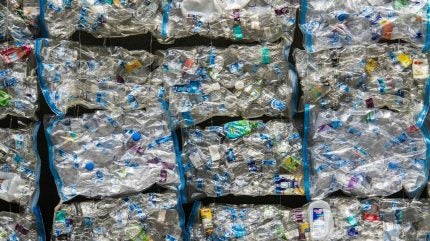
A nationwide bottle deposit programme could substantially elevate the recycling rates of polyethylene terephthalate (PET) in the US, according to a team of researchers from Massachusetts Institute of Technology (MIT).
The MIT team’s research encompassed an analysis of PET bottle collection and recycling rates across various domestic states and countries with and without bottle deposit policies.
They also examined the impact of existing bottle deposit policies and kerbside recycling programmes.
The team’s study indicates that a nationwide programme could boost recycling rates to 82%, a significant increase from the current stagnant rate of approximately 24%.
The researchers found that the implementation of a uniform national bottle deposit policy could help meet the recycling targets set by proposed legislation and corporate pledges.
By adopting economic models from states with successful deposit programmes, the team concluded that a 10¢ deposit per bottle could cover the supply needs of packaging producers at a net cost of approximately 1¢ per bottle when demand is robust.
The study also suggests that individual states should be responsible for the programme’s implementation.
According to MIT School of Engineering’s associate dean and Jerry McAfee professor in engineering, Elsa Olivetti, policies should focus on increasing rates of recycling, as well as the entire cycle of supply and demand and the different players involved.
Olivetti said: “A message that we have found in a number of cases in the recycling space is that if you do the right work to support policies that think about both the demand but also the supply.
“You have to think about the response and the behaviour of multiple actors in the system holistically to be viable.”
The findings from the study are published in the Journal of Industrial Ecology.
The paper is co-authored by Olivetti, graduate students Basuhi Ravi and Karan Bhuwalka, and research scientist Richard Roth.



